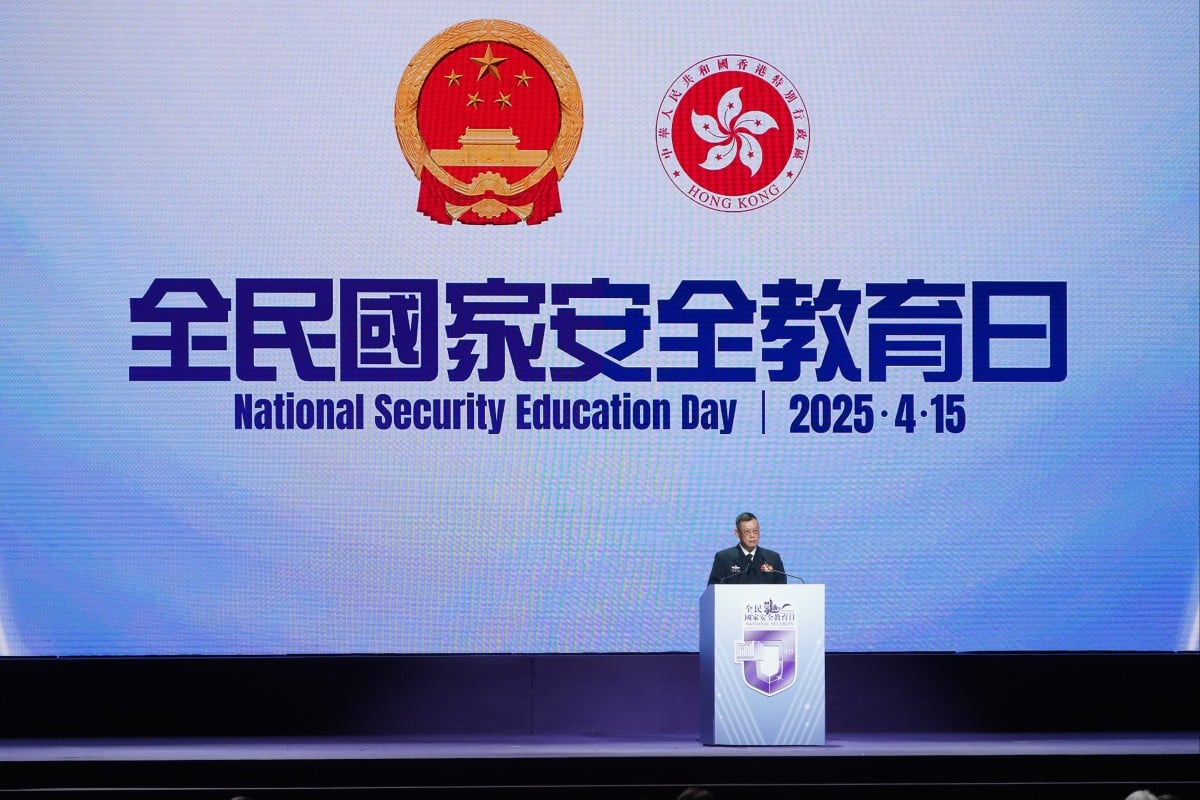 Hong Kong primary schools will now focus on national security and patriotism in English lessons, replacing human rights topics with values education. Photo: Elson Li
Hong Kong primary schools will now focus on national security and patriotism in English lessons, replacing human rights topics with values education. Photo: Elson LiBefore you read: Primary schools’ new English curriculum swaps topics on human rights for patriotism and national security themes, according to a guide released by the city’s education ministry. Lessons now focus on values like respect, animal rights, and environmental protection to shape young citizens.
Think about it: What values do you think English lessons should teach? How might these lessons shape your view of Hong Kong and the world as a whole?
Hong Kong primary schools will be required to enhance their patriotic and national security education as part of a revised curriculum guide for the English language subject.
The previous version of the guide encouraged English teachers to allow students to explore topics related to human rights and equal opportunities.
However, these topics have now been replaced with themes such as respect for others, animal rights and environmental protection.
The Education Bureau on Tuesday released the “English Language Education Key Learning Area Curriculum Guide for Primary One to Primary Six”, eight years after the previous edition was announced. The change means there is now a stand-alone guide for primary schools.
“While the curriculum framework for English language education remains unchanged, updates have been made to each chapter to reflect developments over the years,” the bureau said in the circular, which was sent to the 507 local primary schools.
It highlighted four major areas that were updated – values education, assessment literacy, e-learning and information literacy and reading.
“In addition to developing students’ language skills, values education should be promoted in the school English-language curriculum as it is essential for fostering students’ whole-person development,” it said.
Hong Kong students should sing national anthem ‘with emotion’, says education chief
Authorities introduced national security education to boost patriotism among students after the social unrest in 2019.
The South China Morning Post has compared the previous edition with the latest guide and found that the bureau has added “strengthening values education, covering national education including patriotic education, national security education, and life education” as one of the initiatives to enhance students’ learning experience.
“To help students become informed and responsible citizens with a sense of national identity and an awareness of national security, relevant themes, topics and everyday life events can be identified,” it said.
Under the chapter introducing “proper values and attitudes” in the curriculum, it stated what should be taught to students in English language learning.
“National education, constitution and Basic Law education and national security education are all essential for helping students develop into good nationals who have a sense of national identity, respect the rule of law and abide by the law, hence safeguarding national security,” it said.
The previous guide, published in 2017, stated that students could be provided with opportunities to explore a wealth of value-laden issues, such as human rights and responsibilities, sustainability, and equal opportunities, thereby deepening their understanding of positive values and attitudes from multiple perspectives.
But the issues of human rights and equal opportunities have been deleted in the latest guide, with authorities replacing them with “respect for others, animal rights and protection, and environmental protection”.
In the old guide, the “rule of law, cultural inclusion, respect for pluralism, mutual respect and acceptance” were cited as examples that could be integrated into the curriculum, but they are not mentioned in the new one.
A teaching example related to food is cited to raise students’ awareness of the importance of safeguarding national security and cultivate in students “a sense of belonging to the country, an affection for the nation and a sense of national identity”.
It said students should read an article about Yuan Longping, known as the “father of hybrid rice” for developing the world’s first crossbred rice varieties in the 1970s, to understand his contributions to boosting grain harvests.
The new guide also reminded English teachers to use photos rather than drawing the national and Hong Kong flags and emblems when using them in their teaching resources.
Veteran English teacher Pauline Chow Lo-sai said educators might need more help from the bureau in designing learning materials if it wanted to foster awareness of national security among students.
“National security is a big topic,” she said, adding that schools still relied on textbooks for teaching English. “It would be good to offer schools more similar samples if the bureau wants to foster awareness of national security among students in English lessons.”
